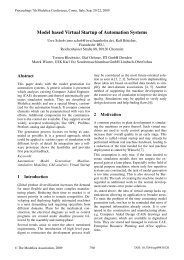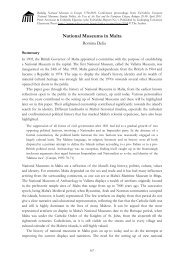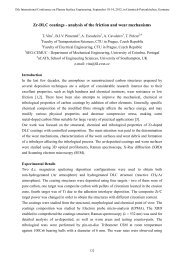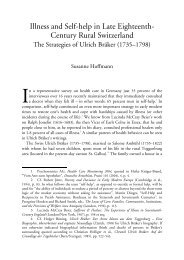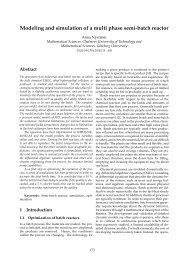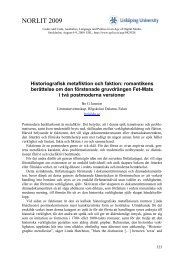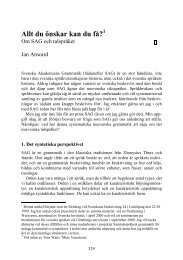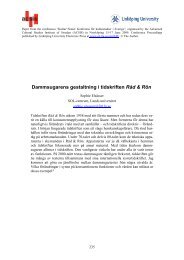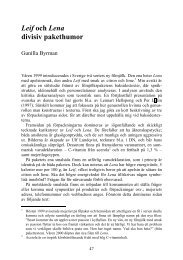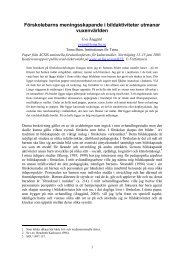Full article (pdf)
Full article (pdf)
Full article (pdf)
Create successful ePaper yourself
Turn your PDF publications into a flip-book with our unique Google optimized e-Paper software.
A healthy body in old age<br />
knowledge. The concept of experience, with its connotations of individual<br />
psychology, may seem out of place in a biopolitical framework because<br />
the exploration of experience is generally associated with an ethos of<br />
humanism, an emphasis on the importance of the subject and its emotions,<br />
and qualitative methodologies, ethnography and understanding. And,<br />
with a few exceptions (Blencowe 2012; O’Leary 2008), Foucault is seldom<br />
associated with the concept of experience. However, contrary to the<br />
common view of Foucault as a theorist who reduces the affective and<br />
embodied to rules about the formation of linguistic discourse, Claire<br />
Blencowe argues that Foucault’s analysis of discourse, rationality and<br />
rhetoric is wholly intertwined with an analytic of affect and embodiment <br />
of passions that grip a person for no reason, have no origins and are mobile<br />
without being directed towards a given point (2012: 68). In the same vein,<br />
Timothy O’Leary argues that Foucault’s work continuously strives to<br />
understand and disentangle the connections between forms of experience<br />
and forms of knowledge; between subjectivity and truth. 4 I understand<br />
Foucault’s critical history of thought merely as the history of the forms<br />
of our experience and what constitutes the human being as a subject<br />
(Foucault 1976). The idea that our experience in the everyday sense of<br />
the term is entangled with forms of knowledge, power and relations to<br />
the self that are historically singular is theoretically useful when trying to<br />
understand how discourses constitute new forms of bodily experience and<br />
new forms of desire. We must study the forms of experience through an<br />
analysis of practices, for example, discourses as embodied in preventive<br />
practices. To speak about the experience of activity is then to speak about<br />
the forms of consciousness, sensibility, practical engagement and scientific<br />
knowledge that take ‘‘activity’’ as their object.<br />
In accordance with the abovementioned scholars, I read Foucault’s<br />
analysis of biopolitics as a history of affective investments, embodied<br />
subjectivities and structures of experience. Foucault did not see experience<br />
as foundational to knowledge, but rather the other way around: that<br />
4 This is precisely what Foucault does in his histories of madness, the prison and<br />
sexuality. He did not seek the a priori of experience; rather, he historicised both the a<br />
priori and experience by identifying singular forms of experience and desire and<br />
working towards their transformation.<br />
11



